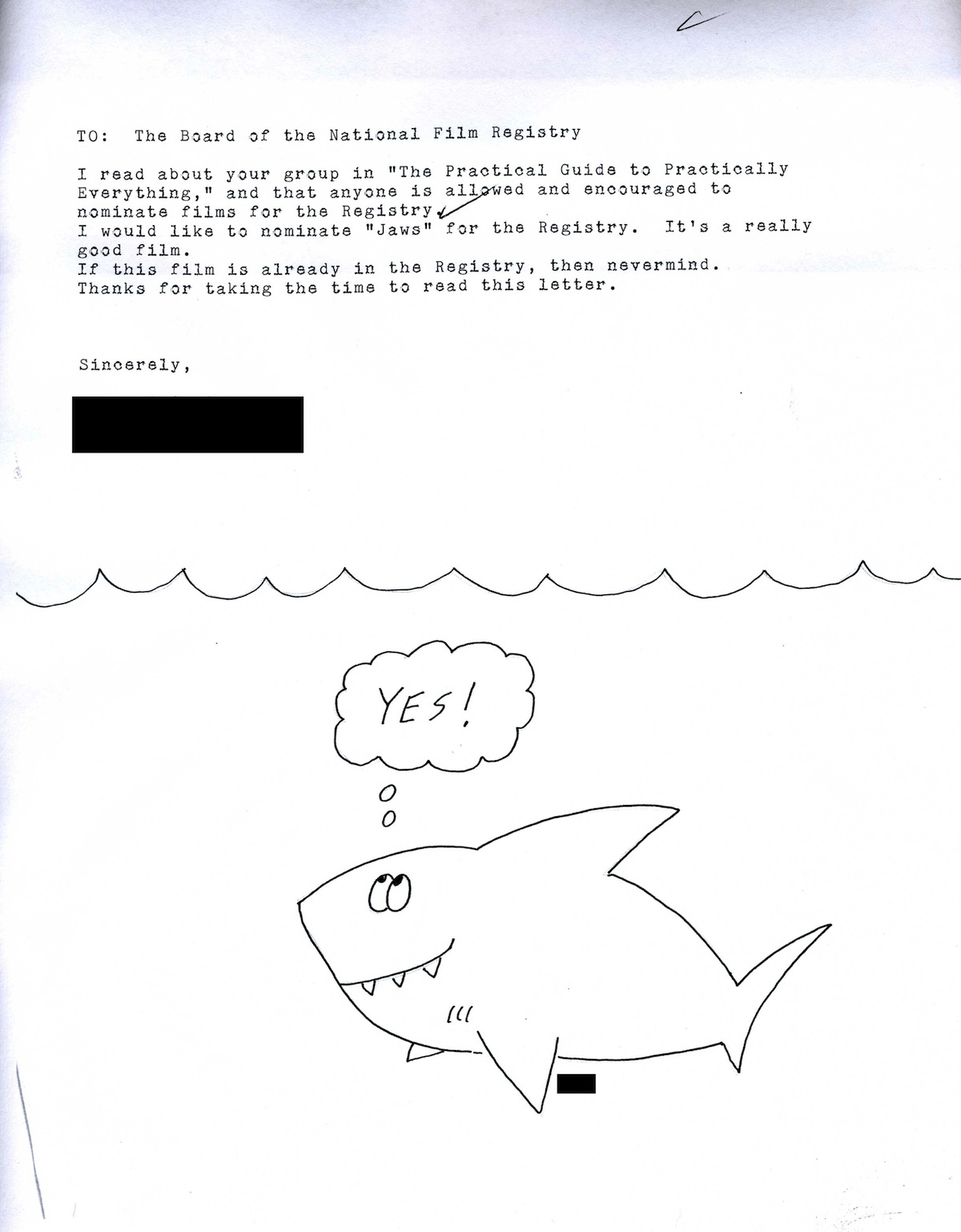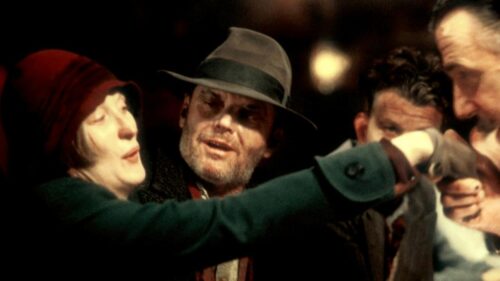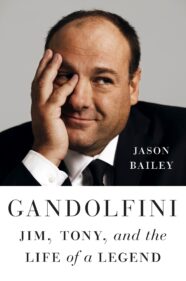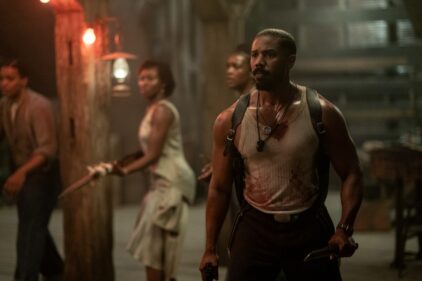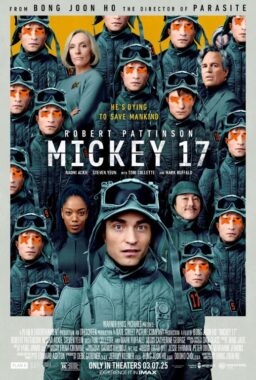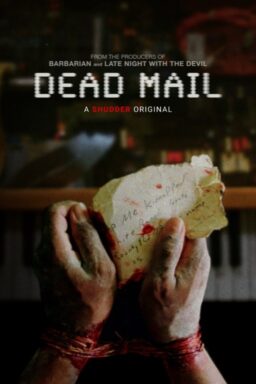Established by Congress in 1989, the National Film Registry is a yearly list of 25 American-made motion pictures deemed to be “culturally, historically or aesthetically significant” and worthy of permanent preservation by the Library of Congress. Suggestions for the Registry are mainly generated by the National Film Preservation Board, a body of 44 film industry members, scholars, archivists and filmmakers. But the public can nominate films as well, and over the last twenty-plus years, hundreds of people have done their democratic duty and sent in letters, notes, e-mails, and faxes listing which films they believe best fit the Film Registry’s criteria.
Before the advent and wide-spread use of e-mail, nominations came to the Library almost exclusively in letter-and-envelope form. Some were composed on lined notebook paper, torn straight from the spiral. Others arrived on the most beautifully embossed and colored parchments. Some were typed, some handwritten.
Some were quite short and unabashedly to the point—the address of the Library of Congress on one side, a single film title (“Being There“!) on the other.
<img src="https://static.rogerebert.com/redactor_assets/pictures/52b92b37d918f47a68000001/being_there_postcard.jpg" style="“>
Others submit a list of titles, without annotation or explanation.

Some letters are epic in length and thoroughness: four single spaced, typed pages promoting “The Little Mermaid” in 1999; seven pages, complete with footnotes, for “Pulp Fiction” in 2005. From time to time, people have also mailed in whole dossiers, complete with Xeroxed reviews of the film, journal articles, newsletters or photos. Some get really creative, perhaps even mailing in original drawings, like a charming “Jaws” illustration which arrived in 1999 (reproduced at the top of this article).
Most of the missives stump for beloved big screen works, from “A Christmas Story” to “Titanic“. Others push titles that are not as mainstream: “The Leopard”; “Alibi”; “Sh! The Octopus”; “Lost in the Stars”; “Creation of the Humanoids”; “The Guilt of Janet Ames,” “Mothra”, “Heaven's Gate“, “The Kentucky Fried Movie” (“an incomparable slice of Americana,” according to its nominator), Cheech and Chong’s “Up in Smoke” and “Breakdowns of 1936” (film’s first blooper reel, supposedly). In 2004, a correspondent suggested: “When the movies to be considered for next year come around, please consider ‘Hudson Hawk.'”
Some feel the need to pre-empt objections. “‘Airplane!’ Silly? Yes. Lowbrow? For the most part. Funny as hell? Most definitely.” (from 1996) “Oddly, I’m not kidding…. ‘Blood Feast’ was the first film of the ‘gore’ variety. ‘Pink Flamingos,’ representing the counter-culture film of the early seventies, broke barriers in cinematic taste and refinement for middle America….” (from 2005)
<img src="https://static.rogerebert.com/redactor_assets/pictures/52b92ad04206c528ad000001/Plan-9.jpg" style="“>
Ed Wood’s infamous, often-nominated “classic” “Plan 9 from Outer Space,” from 1959, gets perhaps the most pro-forma written defenses: “Edward D. Wood, Jr. the man had a deeply personal vision, and no ability whatsoever with which to express it.” (1998) “Don’t laugh. This may be an awful movie but future generations need to realize not everything that came out of Hollywood was gloss and glamour.” (2004) “It is my sincere hope that I will be able to nominate ‘Plan 9 from Outer Space’ not as a deviant film, a film generally marketed as ‘the worst film every made,’ but as an example of the spirit of most would-be film makers in America.” (2008)
Sometimes people like to vote a “straight-party ticket,” uniting their nominations around a theme or single genre of film. For example, in 2000, someone calling himself “Evil_Doom” nominated three films—”The Evil Dead 2,” “Dawn of the Dead,” and “The Texas Chainsaw Massacre.” In 1997, Kyle A., sang the praises of such musically-inclined movies as “Tommy,” “Help!,” “The Rose,” “Purple Rain” and “This is Spinal Tap.” One year a brave soul nominated “Deep Throat,” “Debbie Does Dallas,” “Flesh Gordon,” and “For Your Thighs Only.”
Some enthusiasts are star-driven. One advocated for “To Hell and Back,” “The Red Badge of Courage,” and “The Quiet American,” all starring Audie Murphy. Another from 2009 supported “Aliens,” “The Abyss,” “Navy Seals” and “Susan’s Plan,” all of which feature Michael Biehn. In 2010, “Sofia” nominated three Meryl Streep films: “Sophie's Choice,” “Kramer vs. Kramer,” “Silkwood” and “Out of Africa.” In 2001, a writer pointed out, “No title from the fabulous career of brilliant animator/special effects pioneer/producer Ray Harryhausen appears to have been selected [yet] by the Film Registry….”
And despite the presence of “Naughty Marietta” already being on the Registry (added in 2003), rabid fans of Nelson Eddy and Jeannette MacDonald continue to stump for their two favorite stars.
As one devotee wrote, “Nelson Eddy was my ideal at 17 years of age and continued to [be] through all my years.”
<img src="https://static.rogerebert.com/redactor_assets/pictures/52b9276d96d0e7ee35000038/Screen_Shot_2013-12-24_at_1.18.45_AM.png" style="“>
Specific years often bring with them specific fan-club campaigns.
Thanks in no small part to the group INSITE—the International “Somewhere in Time” fan club—1994 was awash in appeals for that time-traveling romance starring Christopher Reeve and Jane Seymour.
<img src="https://static.rogerebert.com/redactor_assets/pictures/52b927da6688b0e40d00000f/nomination_letter5.jpg" style="“>
In 2001, the entire state of Indiana seemed to write in on behalf of “Hoosiers.” (It worked; “Hoosiers” was one of the titles chosen by the Librarian of Congress that year.) 2003 was the year of “Jurassic Park,” while 2005 saw a heavy write-in campaign for “Caddyshack.” 2009, for whatever reason, was all about “Airplane!” and “The Right Stuff.”
Disney’s “Song of the South” has drawn avid support, especially in 2002, when a flurry of nominations arrived. One wrote, “My secret agenda here is to pry this movie out of Disney’s vaults. I’m less interested in its artistic importance for mixing animation and live-action than I am in the very racial elements that make it controversial—and therefore an interesting social artifact.” “Apollo 13,” and “Superman: The Movie” were favorites in 2009, while 2010 saw massive interest in “Calamity Jane.”
More often than not—especially in the early years of the Registry—people included thought-provoking arguments that might not be out of place in a film journal.
One author drew comparisons between the original “Frankenstein” and the era in which it was made and released: “On screen, the monster turns on his creator and all but destroys him; in reality, the stock market and economy the country had created turned on the country too, all but destroying it in the process.” Another offered a metaphorical reading of Hal Roach’s “Our Gang” shorts, pointing out how these 1930s tales of resilient ragamuffins—portrayed as cut off (or abandoned) by parents, teachers, orphanages and seemingly every other form of authority—seemed to mirror how many Americans must have felt during the Great Depression. Still another espoused the patriotic power of Betty Grable, stating that her iconic over-the-shoulder pose is as much a symbol of America as the Statue of Liberty herself.
Then there were these:

“Planet of the Apes” (1968) “…presented the innovative plot of having human society being surpassed by that of an animal society. This premise provided the perfect opportunity to examine our society from the inside out. The introspection revealed what we as a people were concerned with (scared of) at the end of the 1960s: nuclear war, space travel, racism, the environment, scientific progress, etc.”

“Dr. Jekyll and Mr. Hyde” (1931): “The main character of [‘Dr. Jekyll and Mr. Hyde’] can symbolize the divergent America of the twenties. He represents the good, the prosperous, the wealthy, the virtuous. Yet he also embodies evil, the corruption, the greed that ultimately led to the stock market crash of 1929.”

“The Right Stuff”: “The hordes of reporters on [the astronauts] front lawns (with click cameras and sounds evoking a plague of locusts) feels so primal as to be biblical in assault—at the same time as it presages today’s ‘reality TV.'”

“‘The Birds” demonstrates how human actions have damaged the environment around us.”
Sometimes, in their letters, writers exhibit a good share of anger either over what has been picked or not yet picked for the Registry.
“What’s wrong with you people? I am 72. I think I was a better critic as a teenager than you people are now. With your list it’s no wonder sensitive Americans see so many foreign films.” (1993)
“Surely only artistic snobbery has prevented the inclusion of ‘The Sound of Music.'” (1997)
“How can you not include ‘The Exorcist,’ the most frightening film ever made? I still remember the urinal filled with vomit (not my doing) as I left the theater.” (2000)
“How could you put that suicide movie with Jimmy Stewart on this list and leave out such happy Christmas movies as ‘It Happened on Fifth Avenue’?” (2002)
“You need to add ‘Wall Street’ to the Registry!!! How can you not include a CLASSIC which so totally encapsulates an entire era—the 1980’s!!!! This movie is a CLASSIC!!!” (2003)
“Are you serious? ‘The Pawnbroker’ is not on the list? What does it take?” (2004)
“Hey. ‘Cool Hand Luke’! I mean, come ON. Are your minds not right?” (2004)
“You’ve been hoodwinked by some [‘Back to the Future’] lobbyist to put that film on your list.” (2008)
“Once again this year I’m writing to nominate a film…. My nominee (again) is: ‘South Pacific.'” (2010)
“‘The Princess Bride.’ Are you kidding? Fencing, fighting, torture, revenge, giants, monsters, chases, escapes, true love, miracles….” “The Princess Bride”: Take a sick day [and] watch it while eating soup, then add it to the list.” (2010)

Some letters get touchingly personal. Nominating “Revenge of the Nerds,” “R21165” wrote, “This film is very funny, yet it has a serious side that I find inspirational in that if we believe in ourselves, stay true to ourselves, we can find acceptance, comradeship and success in the face of oppression and obstacle. Perhaps I am reading too much into this film, or am suffering a sense of nostalgia for the pre-911 Reagan years. Every time this film is on late night television, I just can’t keep from watching it, much to the displeasure of my wife. She asks why I watch such a stupid film over and over again…. Every time I see it on TV, I identify with the nerds. Looking back, I guess that I was a nerd, and am proud to admit it.”

Here are excerpts from two different letters nominating “The Sand Pebbles”:
“The film ‘The Sand Pebbles’ was released about the time I became aware of the war in Vietnam. A year later, my brother served in that war. I was too young to see the film a the time, but saw it several years later and it really had an impact on my feelings for my brother, being far from home in a hostile environment, having to fight without a clear objective. Perhaps that is the one reason the film means so much to me….” (1999)
“I first saw [‘The Sand Pebbles’] in the theaters in the 1960s with my mother. She cried when she saw McQueen in his Navy uniform. Probably because he looked so much like my Uncle Buck. This is a treasured film, my little girl and I cry every time we watch it on cable.” (2000)

Here’s an excerpt from a 1995 letter nominating “Rocky II”:
“As a struggling college graduate with mediocre grades who is still attempting to get to medical school, I will always be ‘the underdog.’ I graduated from Rutgers in 1983, finished my pre-med requirements in 1993 and will now take nursing classes. I will apply again to medical school in the 21st century and maybe I’ll accomplish my goal, like Rocky Balboa did in ‘Rocky II.'”

From a 2002 letter nominating the Cold War-era “Duck and Cover” short, which advised children to hide under their desks in the event of a nuclear attack: “Those years in elementary school spent watching Bert the turtle [in ‘Duck and Cover’] are very memorable to me. You see, my father was career Army. I grew up always waiting for my father to be called in the middle of the night to defend his country. Bert made me understand how important my father’s job was and how important it was for me to do my job just as Bert told me.”

In 2009, Commander Mark Kelly, twice captain of one of NASA’s space shuttle missions, wrote in to nominate “‘The Right Stuff.” He said it was “…an inspiring film for me growing up about as far from military test flying as you could be in the State of New Jersey. This film had a great impact on me. I later joined the military and became a test pilot.”
Since the beginning, the Library of Congress has been contacted by hundreds of individuals and a cross section of professions, locations, and, of course, opinions. We’ve heard from the co-CEO of ad firm BBDO; Lilienthal & Fowler, Attorneys at Law in San Francisco; the staff of the Regional Water Authority of New Haven, CT, and “the business office staff of Cabrini College” in Radnor, PA.
Educational institutions have been well represented, with letters from professors from Harvard, Vanderbilt, and Samford universities. Film critics, not surprisingly, like to throw in their two cents. We’ve heard from critics for the Pittsburgh Tribune-Review; Variety; KDKA-TV in Pittsburgh; the Denver Post; the Boston Herald; the Boston Globe; the Richmond Times-Dispatch; Film Threat; KGMB-TV in Honolulu; and KOTA in Rapid City, SD, among other media outlets. We’ve heard from the National Endowment for the Humanities, The Museum of Modern Art, the Museum of Fine Arts in Houston, and the American Museum of the Moving Image in Astoria, Queens.
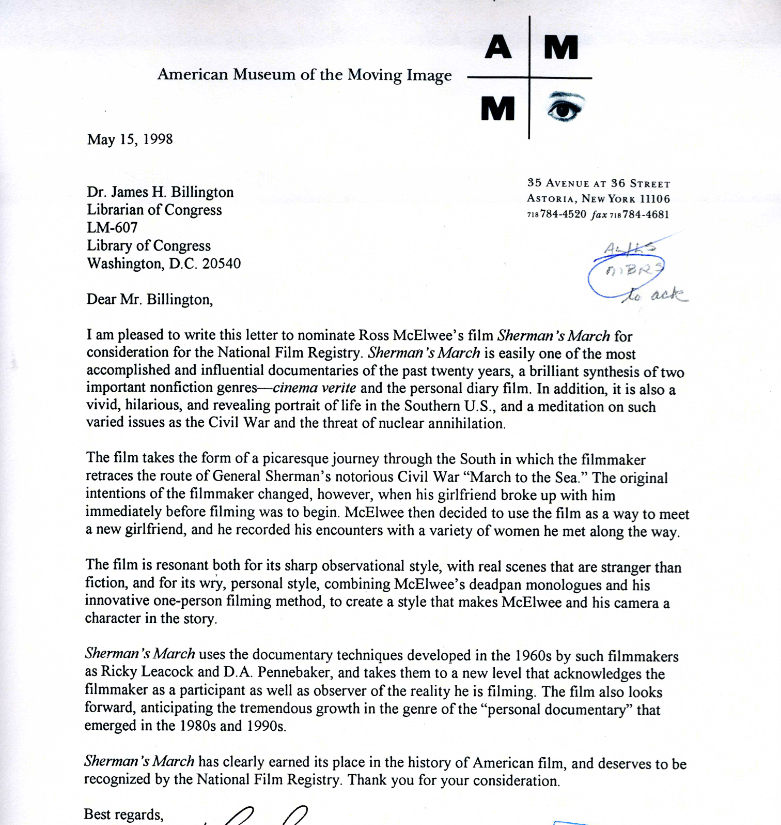
Perhaps not surprisingly, those in the business of making films offer suggestions as well. Letters have come from Richard Kaplan Productions; the Directors Guild of America; Miller-Boyett Productions; and the Research Department of MCA in Universal City, CA. Sometimes, nepotistic or not, producers even write in to nominate their own works.
We’ve also heard from a few notable names over the years: Paul Mazursky (not nominating one of his own films); director Stephen Verona (“The Lords of Flatbush”); radio scribe extraordinaire Norman Corwin; and Joan Juliet Buck, former editor-in-chief of French Vogue and occasional actress (she was in “Julie and Julia”).
In 2005, Vera Fairbanks nominated “The Power of the Press,” a film starring her late husband Douglas Fairbanks, Jr. That same year, actor Peter Mark Richman wrote in nominating “Friendly Persuasion,” a film representing, among other things, his film debut. Actress Elizabeth MacRae once wrote in and nominated “The Conversation,” a film featuring her, and written by her late husband Nedrick Young. In 2010, the grandchildren of W.C. Fields spoke up for “Poppy” and some the great comic’s other films.
Junior high, high school and college teachers assign their students to write essays explaining why such films “Pulp Fiction,” “Bye, Bye Birdie,” “Blue Hawaii” or “Soylent Green” belong on the National Film Registry. Thankfully, while the Library gets these letters, we don’t have to grade them.
Even younger students have been known to write in. Some of them have surprisingly adult tastes.
Jake was 11 in 1998 when he sent in a list of 50 films that included “Chariots of Fire,” “The Deer Hunter,” “Apocalypse Now,” “Casino,” “Patton,” “A Clockwork Orange,” and “The Godfather” (parts one and two). Christopher was 14 in 1996 when he suggested “Network,” “Elmer Gantry,” “The List of Adrian Messenger” and “A Man for All Seasons.” In 2002, a young critic inquired, “Do I have to pay a charge when I nominate films? I don’t want my parents to get mad at having to pay.”
Though the Registry is currently confined to only American-made films, that hasn’t stopped foreign-based film lovers from mailing in their thoughts. In 1999, the Library received the following missive: “I don’t know whether or not I am allowed to have a say in this since I am not an American. I’m from Denmark….” Other letters have come from Portugal and Australia (nominating “Field of Dreams“) and St. Petersburg, Russia (“I beg you to please nominate ‘The Great Caruso'”).
To what do we ascribe this impassioned, multi-generational involvement, this urge of audiences to write in without prodding, without any assurance of response or reward, to weigh in on a non-political issue, a topic unrelated to healthcare, jobs, or education?
First, Americans are used to having a voice in what their government does.
Second, everyone—or almost everyone—goes to the movies.
Films have a way of lodging themselves into our memories. They have a unique ability to sum up a particular time in America and, even more importantly, an important moment in a viewer’s life. Decades after we first saw them, certain images or bits of dialogue remain with us, helping us recall specific events, even moods. The write-in votes to the National Film Registry seem to be about these individual emotional recollections as much as about outstanding filmmaking.
As a (rather shaky) hand-written letter from September of 1989 stated, “I was 78 years old in April. Been going to movies since 1920….I’m selecting films that depict American life as we knew it.”
